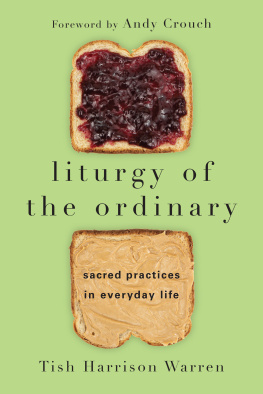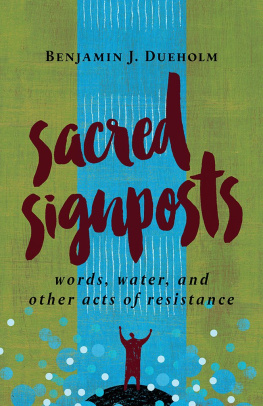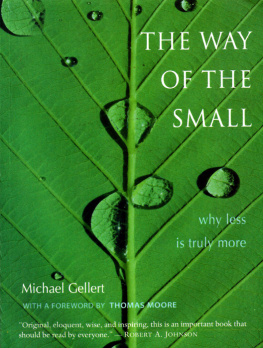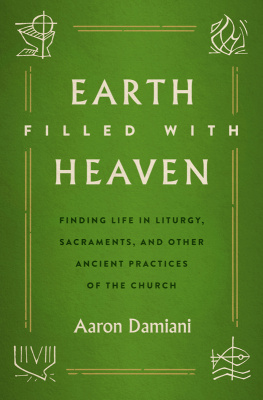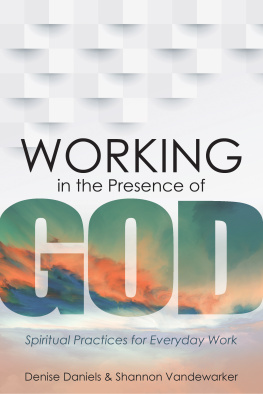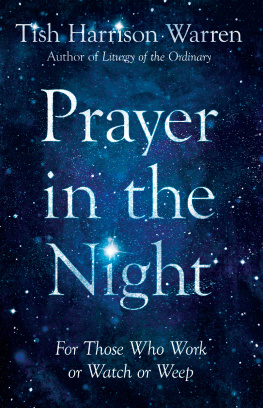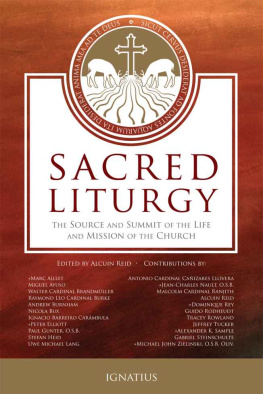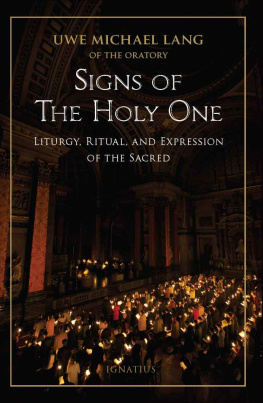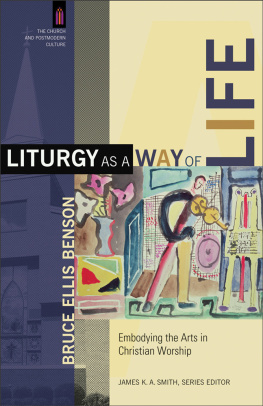liturgy of
the ordinary

sacred practices
in everyday life
Tish Harrison Warren
Foreword by Andy Crouch
InterVarsity Press
P.O. Box 1400, Downers Grove, IL 60515-1426
ivpress.com
2016 by Lutitia Harrison Warren
All rights reserved. No part of this book may be reproduced in any form without written permission from InterVarsity Press.
InterVarsity Press is the book-publishing division of InterVarsity Christian Fellowship/USA, a movement of students and faculty active on campus at hundreds of universities, colleges, and schools of nursing in the United States of America, and a member movement of the International Fellowship of Evangelical Students. For information about local and regional activities, visit intervarsity.org.
Scripture quotations, unless otherwise noted, are from The Holy Bible, English Standard Version, copyright 2001 by Crossway Bibles, a division of Good News Publishers. Used by permission. All rights reserved.
While any stories in this book are true, some names and identifying information may have been changed to protect the privacy of individuals.
Cover design: Cindy Kiple
Interior design: Dan van Loon
Images: peanut butter on bread: Don Nichols/iStockphoto
Images: jelly on bread: Don Nichols/iStockphoto
ISBN 978-0-8308-9220-4 (digital)
ISBN 978-0-8308-4623-8 (print)
This digital document has been produced by Nord Compo.
TO JONATHAN
My love, my friendhow was your day?
foreword
andy crouch
The structure of this book is simple, with a touch of genius.
It encompasses one day, from our very first moments of waking in the morning on the first page to our drifting off into sleep on the last. No more and no less. But in between, with the writers (and indeed the poets) gift of slowing down and paying the best kind of attention, Tish Harrison Warren connects the moments of an ordinary day with the extraordinary pattern of classical Christian worship.
In doing so, Tish dismantles that most stubborn of Christian heresies: the idea that there is any part of our lives that is secular, untouched by and disconnected from the real sacred work of worship and prayer. This misreading of the human condition has taken many forms over the centuries, even though it should have been dealt a decisive blow by Jesus earthly, earthy life as Son of Man and Son of God. It takes many forms in our timesome easier to recognize than others. There is our tendency to speak of the sanctuary as somehow of more importance to God than the workplace or the home, and those (like Tish) specially ordained to its work as somehow closer to God than those who work in the convenience store or the office complex.
But there is also the more subtle quest for a suitably radical life, a life of conspicuous sacrifice and servicea life that seems obviously set apart for something more than the mundane and (so we start to think) unimportant life. In this version of the ancient error, nonprofit work is more spiritual than for-profit work; urban neighborhoods are more spiritual than suburban ones; bicycles are more spiritual than minivans.
As someone who is both ordained to priestly service and who has invested her life in radical ways to serve the materially and spiritually poor, Tish is the perfect person to help us discover just how wrongheaded these sacred-secular distinctions are. Like all heresies, this one can only be conquered by the beauty of orthodoxy, and the beautiful orthodoxy that undermines all our foolish secularizing is that endlessly surprising Christian doctrine, the incarnation. The Word became flesh. The Word went fishing. The Word slept. The Word woke up with morning breath. The Word brushed his teethor at least he would have, if the Word had been a twenty-first-century American instead of a first-century Judean. This uniquely Christian belief is amazing, faintly horrifying, and life-changing.
And just as wonderfully, the genius of this book is to show us that the dismantling goes in the other direction as well. In Tishs telling, and in any honest Christians experience, the sacred liturgy itself is as ordinary as can be much of the time. We say the same prayers, make the same gestures, arrive and leave in one sense much the same people we were the previous Sunday, and the Sunday to come. (And this is just as true, of course, of Christians who worship in nonliturgical churches!)
It is not just that the secular is shot through with the sacred. Worship itself is made up of ordinary stuff. We use plain words. Some of the most the glorious words in Cranmers Book of Common Prayer are, well, common and plain enough to make you weepWe have left undone those things which we ought to have done, and we have done those things which we ought not to have done, and there is no health in us. We are baptized in plain water. We consume plain bread and wine. And it all is lifted up by plain people.
Yet all of this is far from ordinary. Our bodies, our pleasures, our fears, our fatigue, our friendships, our fightsthese are in fact the stuff of our formation and transformation into the frail but infinitely dignified creatures we were meant to be and shall become. Our moments of exaltation and our stifled yawnssomehow they go together, part of the whole life that we are meant to offer to God day by day, as well as Sunday by Sunday, the life that God has taken into his own life. It is the life that Christ himself assumed, and thus rescued and redeemed.
With its laugh-out-loud moments and moving descriptions of a life lived imperfectly but well, this is a great gift of a bookan ordinary book, in one way, but also not ordinary at all. Take and read. Tastenot just the wine and bread, but the peanut butter and jelly, tooand see. The Lord is good. Every square inch of our lives, every second, is his.
It must be remembered that life consists not of a series of illustrious actions, or elegant enjoyments; the greater part of our time passes in compliance with necessities, in the performance of daily duties, in the removal of small inconveniences, in the procurement of petty pleasures.
DR. JOHNSON
It is a quotidian mystery that dailiness can lead to such despair and yet also be at the core of our salvation.... We want life to have meaning, we want fulfillment, healing and even ecstasy, but the human paradox is that we find these things by starting where we are.... We must look for blessings to come from unlikely, everyday places.
KATHLEEN NORRIS
That we ought not to be weary of doing little things for the love of God, who regards not the greatness of the work, but the love with which it is performed. That we should not wonder if, in the beginning, we often failed in our endeavors, but that at last we should gain a habit, which will naturally produce its acts in us, without our care, and to our exceeding great delight.
BROTHER LAWRENCE
waking

baptism and learning to be beloved
I wake slowly. Even when the day demands I rally quicklywhen my kids leap on top of me with sharp elbows or my alarm blaresI lie still for the first few seconds of the day, stunned, orienting, thoughts dulled. Then comes, slowly, the dawning of plans to make and goals for the day. But in those first delicate seconds, the bleary-eyed pause of waking, before the tasks begin, before I get on my game, Im greeted again with the truth of who I am in my most basic self.

